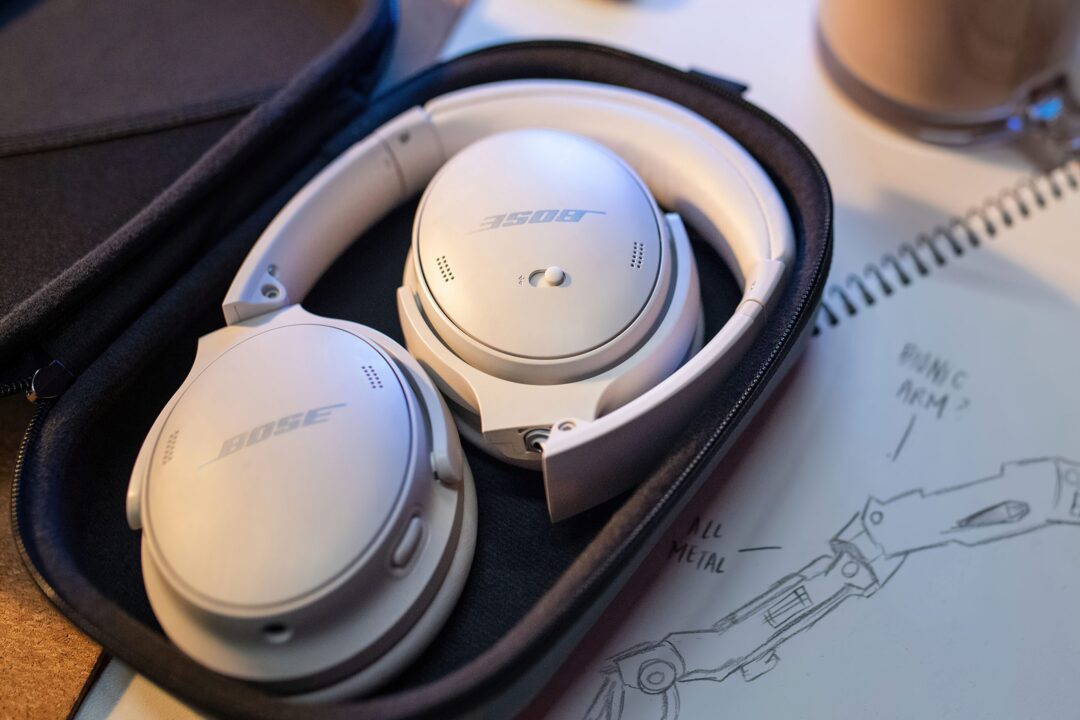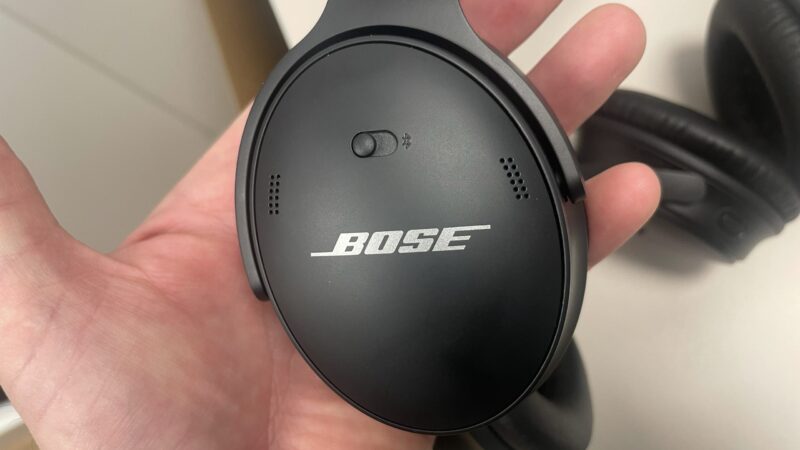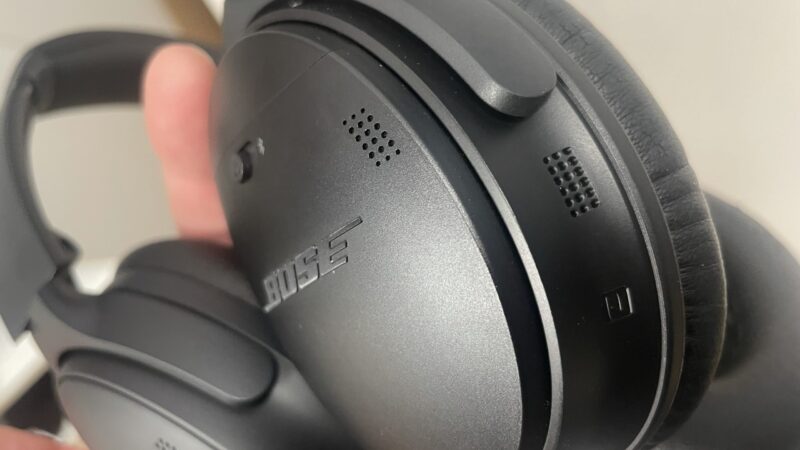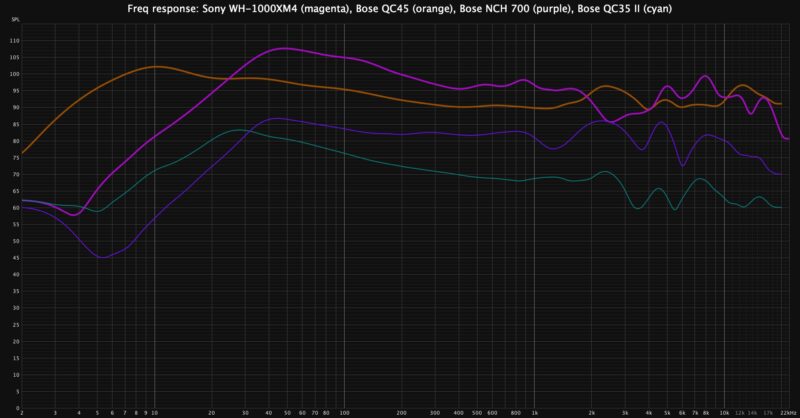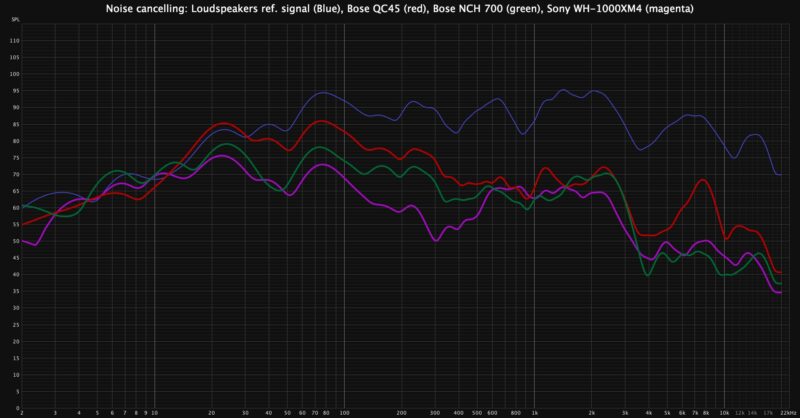When Bose gave us the QuietComfort 35 5 years ago, it was something very special. They had cut the cable on their best noise-canceling headphones (QC25), thus changing the entire market for wireless headphones. It was not long before “everyone” followed Bose’s lead, and the shops were flooded with wireless, noise-canceling headphones. Now no one wanted cable anymore, and noise reduction became almost a requirement.
Time has passed, and the competitors have both caught up with QuietComfort 35 (and the slightly updated QC35 II that came a little later). And several have moved on from there. That’s why Bose launched the new top model NCH 700 two years ago, with a new and more streamlined design. The model did not replace the QC35 II, but was a notch above.
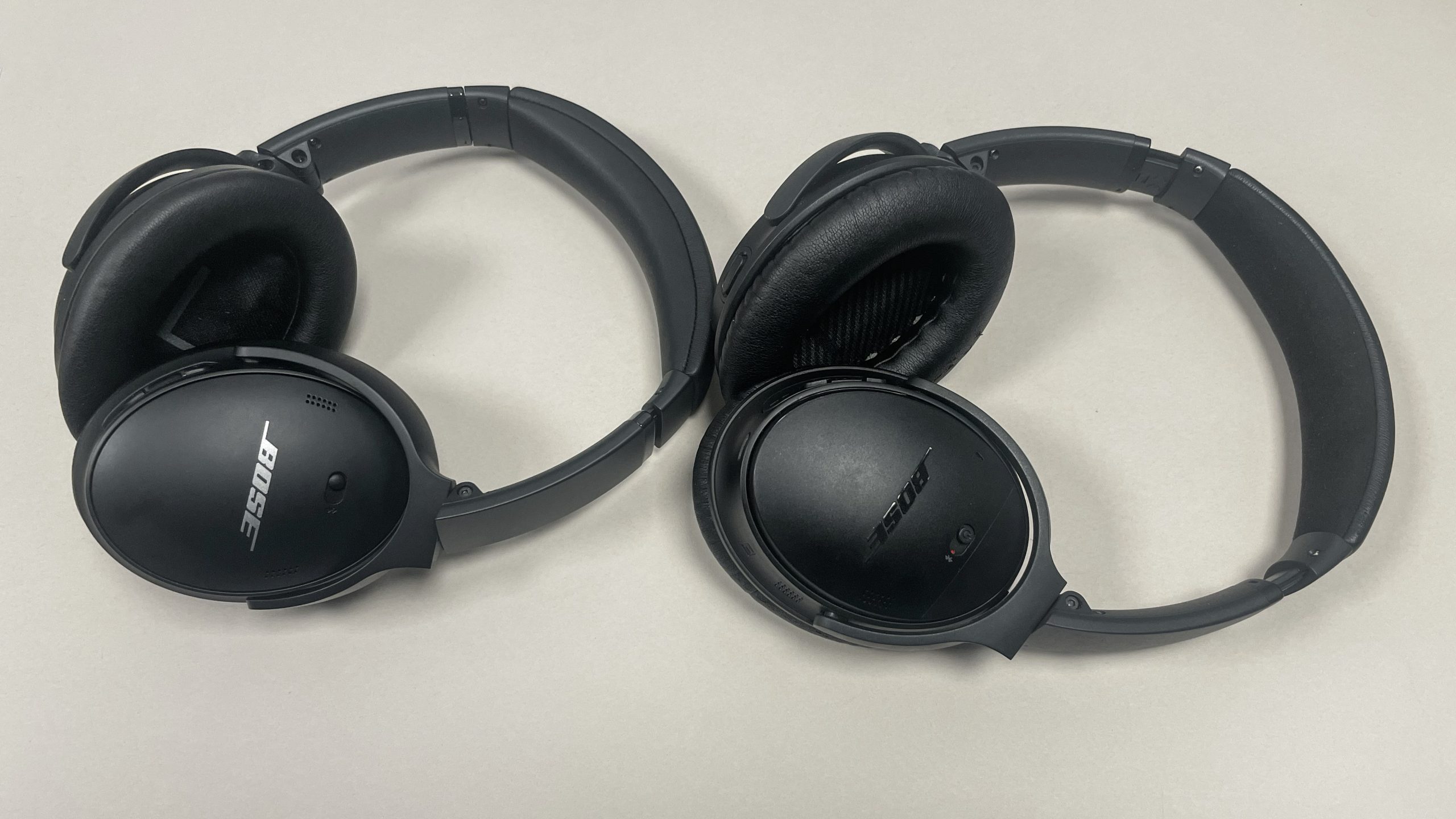
Now finally comes the replacement, which has been given the natural name QuietComfort 45. It is very similar to the QC 35 II, with physical buttons and all. These are a little more rounded than with the predecessor, and the earcups have a slightly smoother design, where the joints were more angular with the predecessor. The padding is now upholstered in smooth imitation leather instead of fabric. But all in all, these are two very similar headphones, you have to look pretty closely to discover the differences.
New features
A welcome upgrade from last is that the QC45 – of course – has got a USB-C connector. A more stable plug than micro-USB, and it can also charge faster. You can get up to 3 hours of playing time from a 15 minute fast charge.
But the big news is ambient sound, which Bose calls Aware Mode. That is, the headphones amplify sounds from the outside instead of muting them. This allows you to hear what people are saying to you whenever you want, and it is safer to maneuver through potentially dangerous traffic.
Many people will also like multi-point connection via Bluetooth 5.1. You can now connect two devices at the same time, such as mobile phone and PC, and thus be more connected and do not have to remove the headphones when the phone rings. For example.
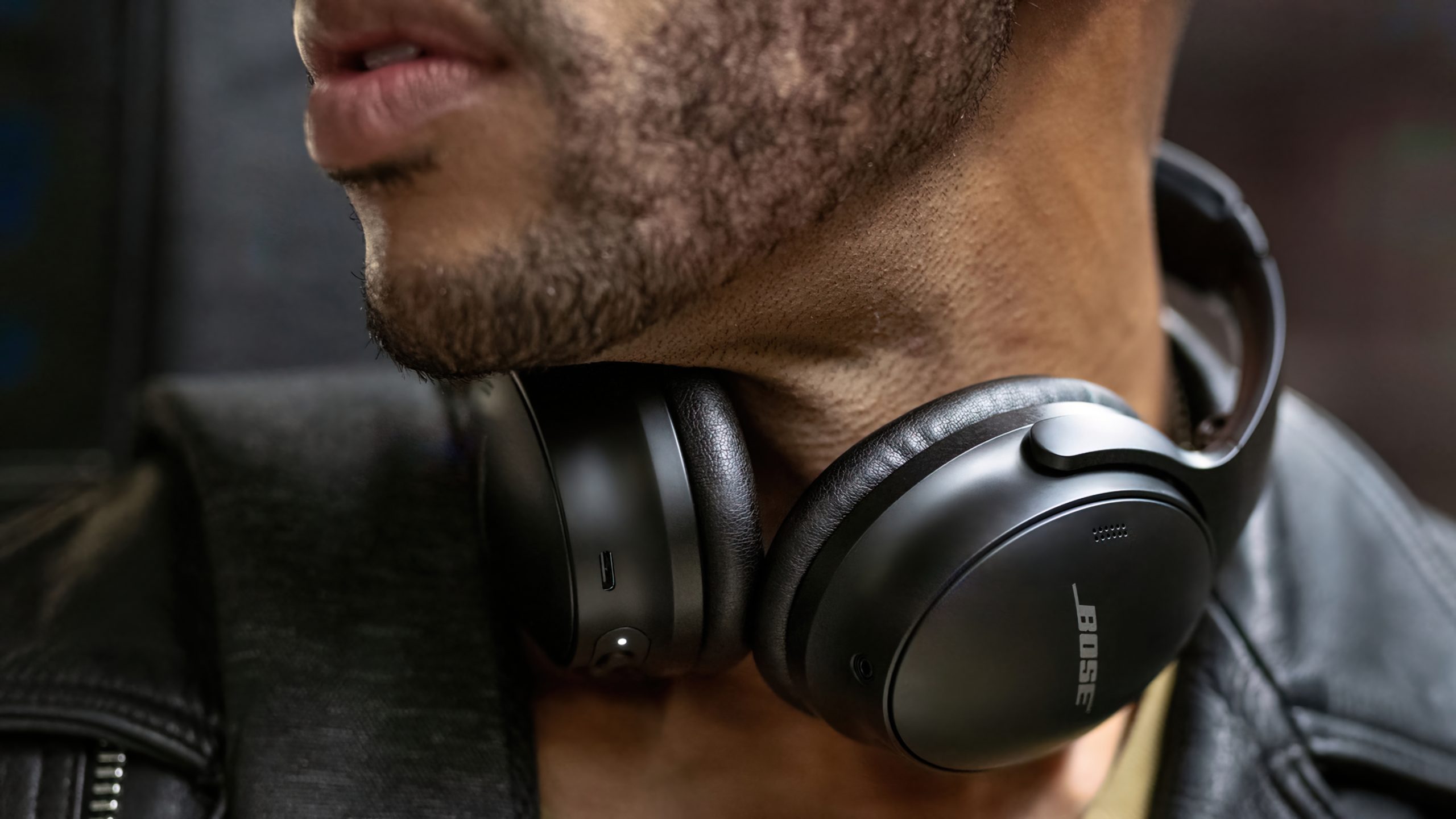
The same features as the NCH 700
Thes features are new to the QC45. But they are old news, since they are already available in the NCH 700. It can adjust the noise attenuation in as many as ten steps, but with the QC45 the attenuation is always maximum. You can select either noise reduction or ambient sound, but you cannot turn both off alltogether. A bit strange, not least because it could have been a nice way to get longer battery life.
What functionally distinguishes the QC45 and NCH 700 is the look that is rounder and more minimalist on the NCH 700, and more industrial on the QC45. Some will probably prefer the QuietComfort model because of its physical buttons. Instead, the NCH 700 uses the swipe function to switch between songs and turn the volume up and down. The QC45, like its predecessor, is fully collapsible, with the NCH 700 only partially foldable.
Speech quality
Wearing the QC45 feels very familiar, like having an old friend visit. The 240 grams are very light, and the fit is exquisite. When it comes to comfort, many could learn from Bose, it’s almost like having down pillows on your ears. The fact that the headphones have a physical power switch will probably be appreciated by many, along with physical buttons for turning up and down the volume, switching back and forth between songs, and answering or rejecting calls.
The call quality is very good, the QC45 effectively shuts out noise while focusing nicely on the user’s voice. In comparison, my voice through the QC35II sounds a little sharper and less natural, and I also think the NCH 700 has a slightly less natural reproduction of the overtones – although it also has exquisite speech quality. If we take the arch-rival Sony WH-1000XM4, then my voice sounds fuller through them, but on the other hand, the harmonics and thus the consonants are not as clear.
Noise cancellation
Bose has always been good at canceling noise, and the same must be said about QuietComfort 45. They still have more residual noise, than I had hoped. The hiss is louder than through both its predecessor QC35 II and NCH 700, which is the quietest of the three. The Sony WH-1000XM4 also has a bit of a hiss, but this is lower in frequency and is not as prominent as with the QC45.
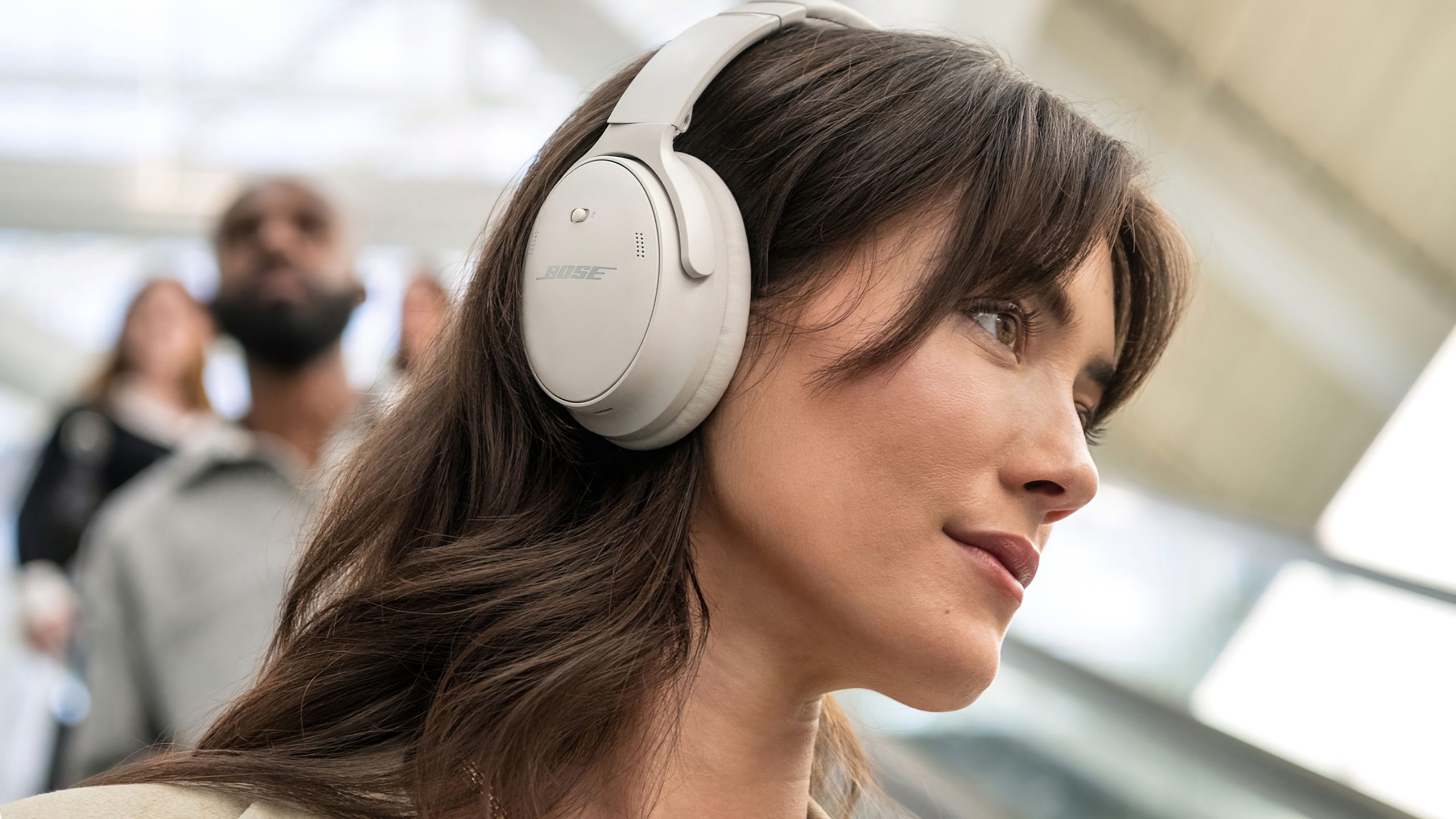
Noise from outside is effectively suppressed, and background noises from traffic and from inside a train compartment are shut out. In the harmonic range, slightly more noise is emitted than with both the NCH 700 and the Sony WH-1000XM4. I notice it, for example, from the click in the keyboard when I type, which I hear better through QC45 than from the other two. But that, for example, the Sonys have 3 dB more noise reduction than the QC45 is af no practical importance; they work more than well enough for the purpose.
Ambient sound also works as intended, sounds from outside sounds clear and natural enough when this is activated.
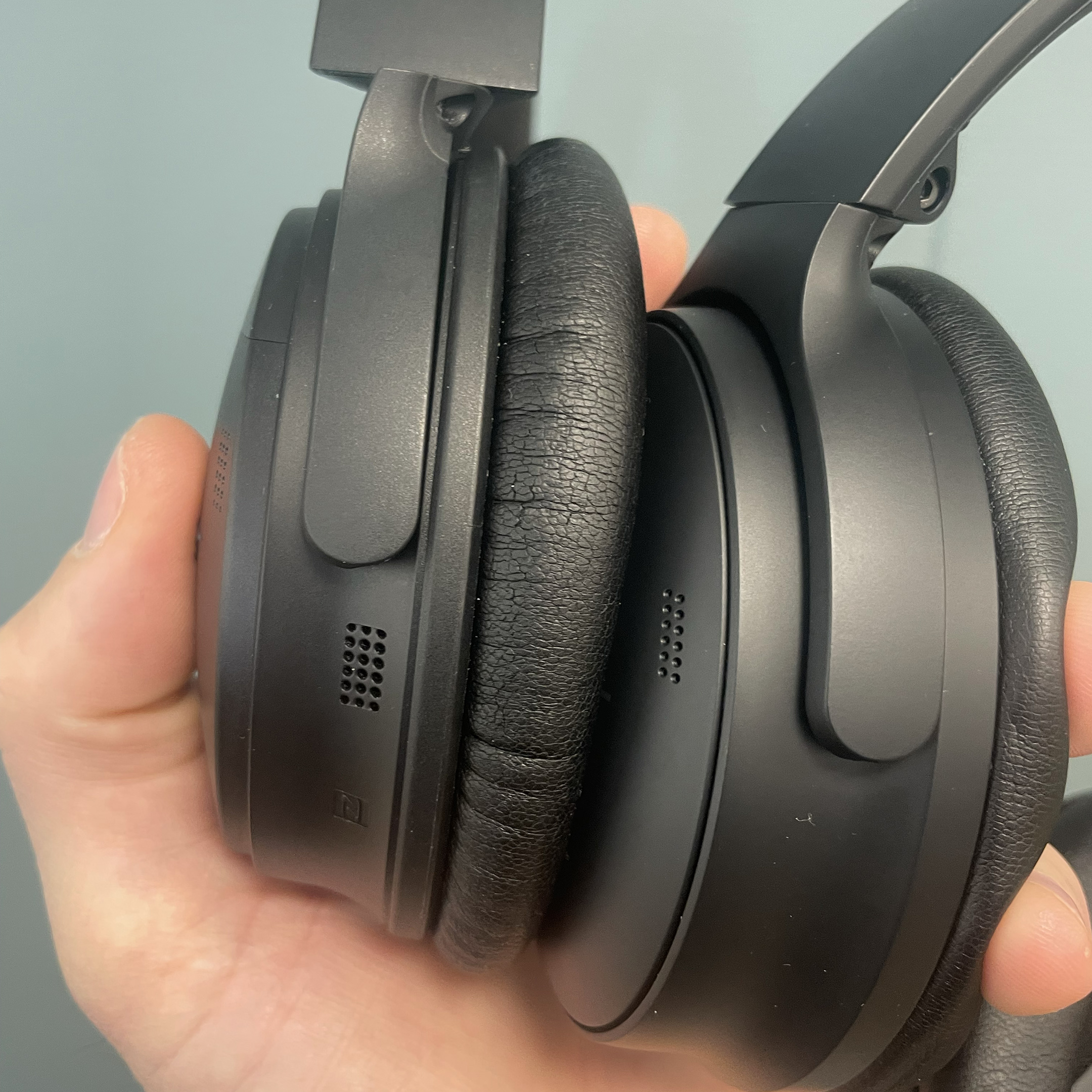
Sound quality
So how does music sound through the new Bose headphones? Well, if you’ve heard the predecessor, you’ll nod in recognition here. Bose goes for the most linear sound possible, which means that no instruments mask each other in the soundscape. Everything comes out.
The voice of Cat Power on her excellent Frank Ocean cover Bad Religion is clear and distinct, as is the guitar. But the snare and cymbals are a bit sharp. There is not quite enough resolution in the high range, and it may sound a bit aggressive. The same is experienced with the new single Mammamia by the Italian rock group Måneskin. A song with a lot of energy, and that sounds tough. But it also gets a little sharp. The NCH 700 has the same general sound balance, but is a bit smoother at the top. Marginal better sound, simply.
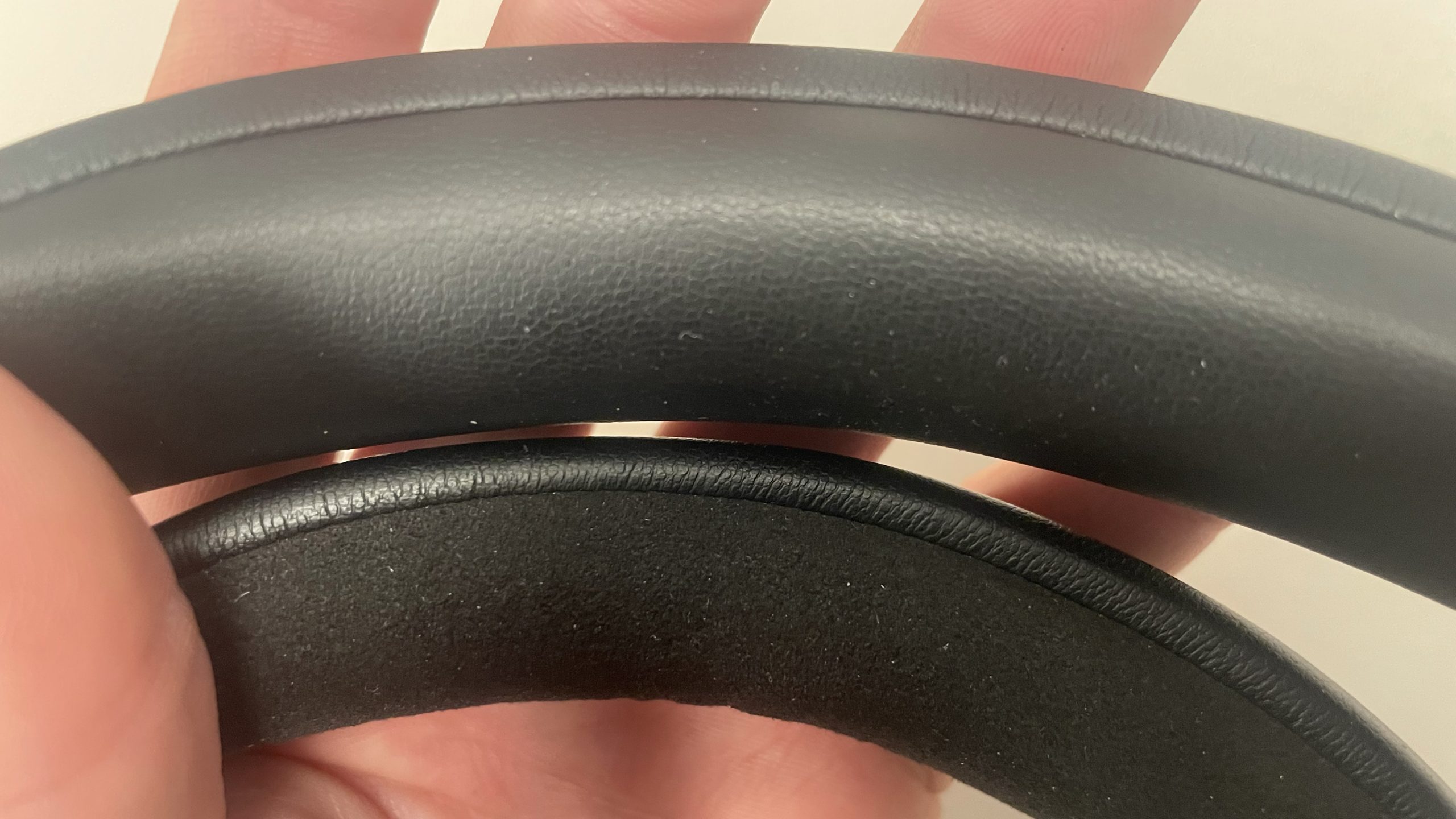
The Sony WH-1000XM4, on the other hand, has more thrust in the middle bass than all of them, but feels more subdued in the treble. On some music, the Sonys sound more engaging, such as rhythmic pop music ala Summer by Jaden but can also sound more “hollow” than Bose, on music with a lot of energy in the treble. On the other hand, on rhythmic pop music such as, there is more drive in the Sonys.
The Bose QC45 sounds well enough, but if the goal is the most truthful and musical reproduction possible, it’s up to competitors like the Shure Aonic 50, Beyerdynamic Lagoon ANC or Dali IO-6. There is also no EQ in the Bose Music app, so you can not adjust the sound.
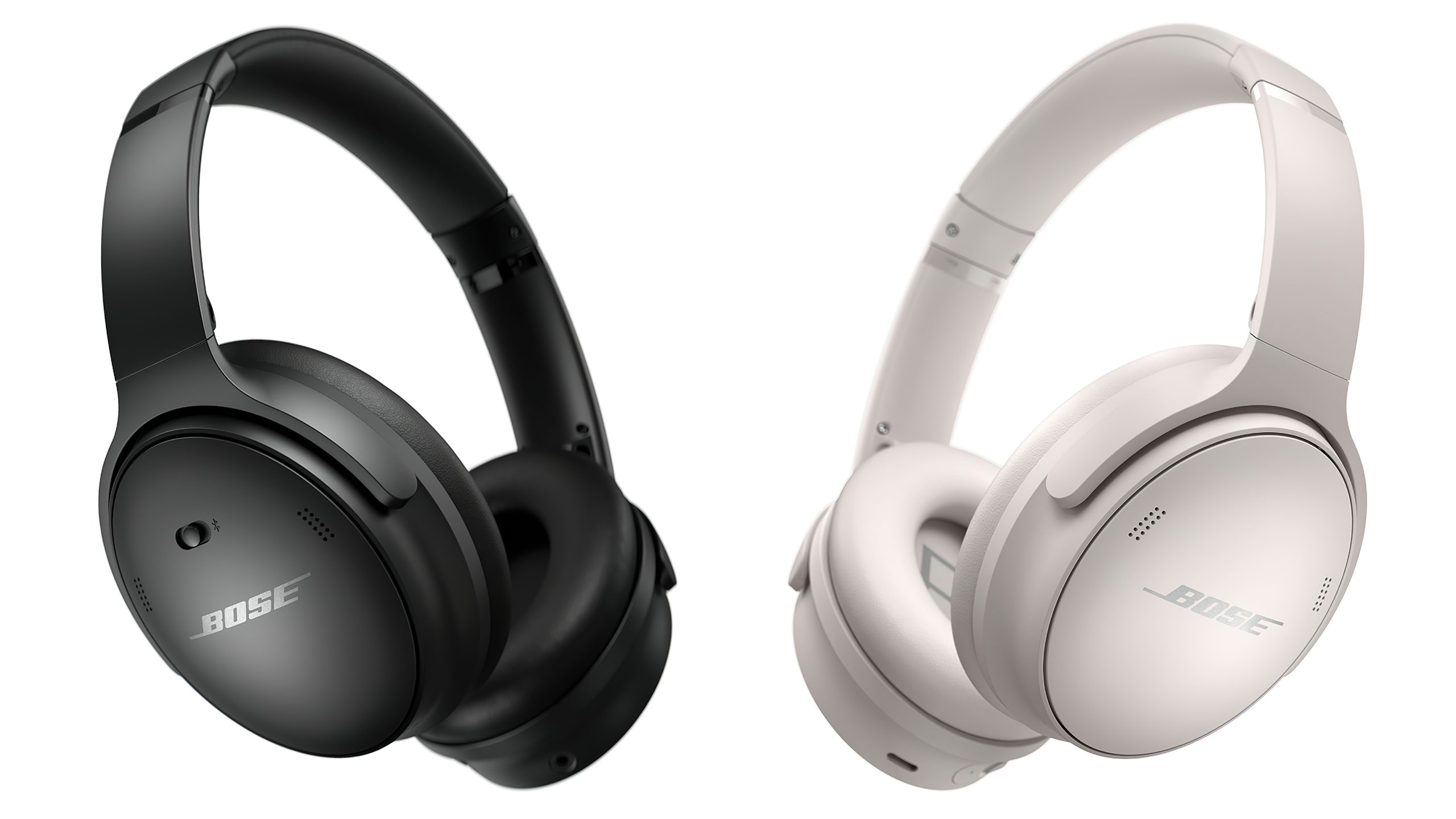
Conclusion
If you like the Bose QuitetComfort 35, you will like the QuietComfort 45 even better. They are basically the same headphones, only with USB-C, ambient sound and multipoint.
The sound is very reminiscent of its predecessor, ie neutral but perhaps not the most engaging. First and foremost, we want a little more impact in the bass, and a better resolved treble reproduction. And why no EQ in the app?
Fit and noise reduction are where they should be, and the speech quality has improved since last time. On the whole, this is a welcome update of a modern classic, although both the NCH 700 and some competitors depart from some important points.

We think
Among the most comfortable headphones we know of. Good noise reduction and ambient sound. Neutral sound balance. The sound is perceived as slim, noise reduction has a bit of a hiss and can also not be turned off without simultaneously activating ambient sound. Not waterproof.
319 €
Specifications
- Type: Over ear, closed, wireless
- Drivers: Not specified
- Frequency range: Not specified
- Active noise reduction: Yes
- Battery life: 24 hours with ANC
- Voice control: Yes (uses mobile voice assistant)
- App: Bose Music
- Connections: Bluetooth 5.1 (SBC, AAC), 3.5 mm analog
- Weight: 240 g
- Colours: Black or gray
- Web: bose.com
